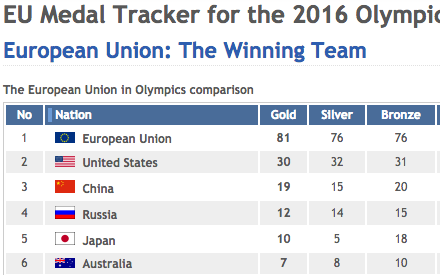ESR linked to this article, saying “This was kind of eye-opening. I’m not sure I believe all the fact claims, but it’s good for understanding what Donald Trump thinks he’s doing and why his opponents have consistently misunderestimated him.”
Think about this notion, that part of what Trumpism is about is applying Taleb’s model of, intellectual yet idiot. A good case study is Trump’s skepticism about consultants. Jeb Bush raised $110 million dollars, and had one delegate. Trump kept wondering why he was paying these, intellectual yet idiots, to run his campaign. It never occurred to Trump to hire people who were truly stupid to run a campaign, so Trump ran his own campaign. People said, well he doesn’t know anything. This is the guy who, The Apprentice was the number one TV show in the country, he’d been on the air 13 years, but they thought he didn’t know anything.
He had the most popular tie in the country. He ran a $10 billion dollar empire, but of course, he didn’t know anything. He made Miss Universe a success. They said, yeah, but what do you really know about the voters? Well, he knew that they were consumers. What does he know about consumers? Branding matters. What did he say from day one? Let’s Make America Great Again. If you’re on the left that’s a frightening concept, but if you are a normal, everyday, blue collar American, the kind of people who built Trump’s buildings, you thought, yeah, I like the idea of making America great again, so then they bought a hat. The hat didn’t say Trump. It said, Make America Great Again.
He went around the country, and he figured out, this is how you appeal to people. Start with the idea that using common sense, if I can get this through to the Pentagon, this will be one of the greatest revolutions in military affairs you’ve ever seen. […]
You have to get it in your head. The current system is broken. It is obsolete, so don’t try to fix it. Try to replace it. Trumpism also means they use modern technology. Trump has 25 million people on Twitter and Facebook. His great realization, which occurred around October of 2015, you can actually reach all these people for free. He decides on Tuesday, let’s do a rally in Tampa. They email, and Tweet, and Facebook, everybody in Florida that’s in their list, and says, hi, I’m going to be in Tampa on Friday at 5 o’clock, and 20,000 people show up.
The other candidates are all buying TV ads. He’s showing up at a mass rally, which is covered live on television. He then has 20,000 people with smartphones who take his picture. They all send it out on Facebook and Instagram. If you figure 40 people per person, a 20,000 person rally, is an 800,000 person system, about twice the size of MSNBC. For free. There’s no exchange rate you can create that makes sense. It’s like trying to compare Polish cavalry and the Wehrmacht in 1939. These are totally different exchange rates.
Trump also understands that you have to be on permanent offense. If you look at the Wehrmacht, the Army of Northern Virginia, and the Israeli Army, they all have the same doctrine. If you are surprised, one third of your forces go into defense, two thirds go on counterattack. You never give up the initiative. That’s Trump. Trump’s core model is, you hit me, I hit back, and I hit harder than you hit. He learned it in the New York media when he was a business man. He’s on permanent offense. He gets up in the morning figuring out, how am I going to stay on offense? He understands that the media has to chase rabbits, so he gives them rabbits to chase, because if he doesn’t give them rabbits to chase, they’ll invent a rabbit.
If you were to go back, for the last two weeks, and look at how many stories there were about Mitt Romney, and say to yourself, do you think Trump minded that the media was fascinated by whether or not Mitt Romney would be Secretary of State? He bought two weeks of non coverage because he gave them junk they could talk about, and the media has to talk about something. The simpler and more stupid it is, the easier it is for them to do it. He doesn’t try to give them lectures that are complicated, because they can’t cover it. He just releases a rabbit, often by tweet, and the media goes trotting after it happily.




